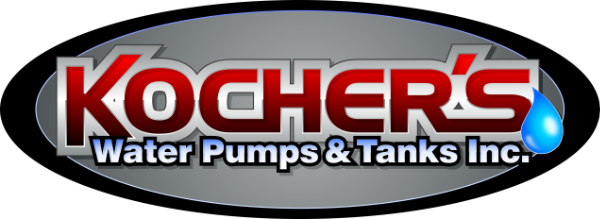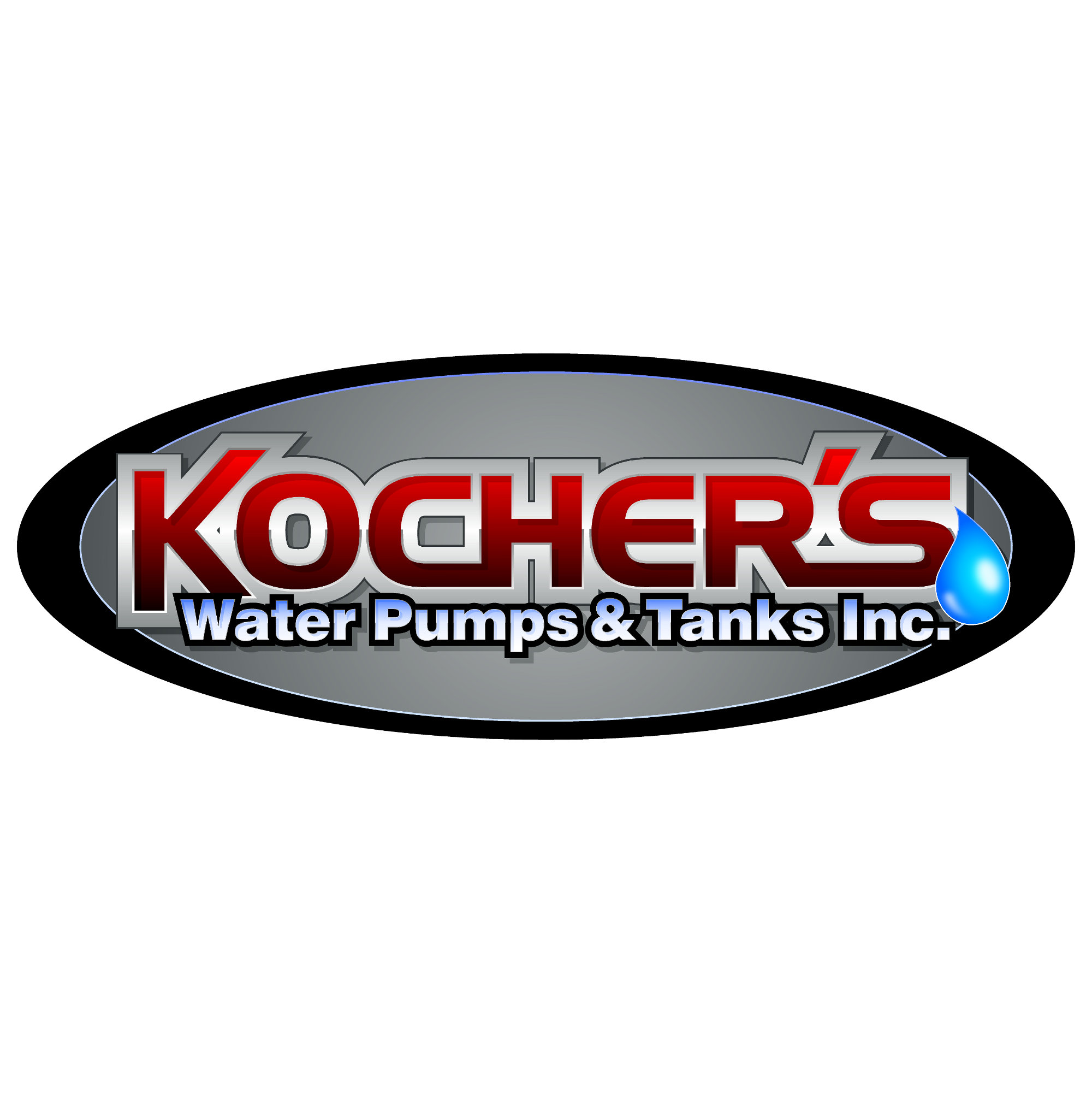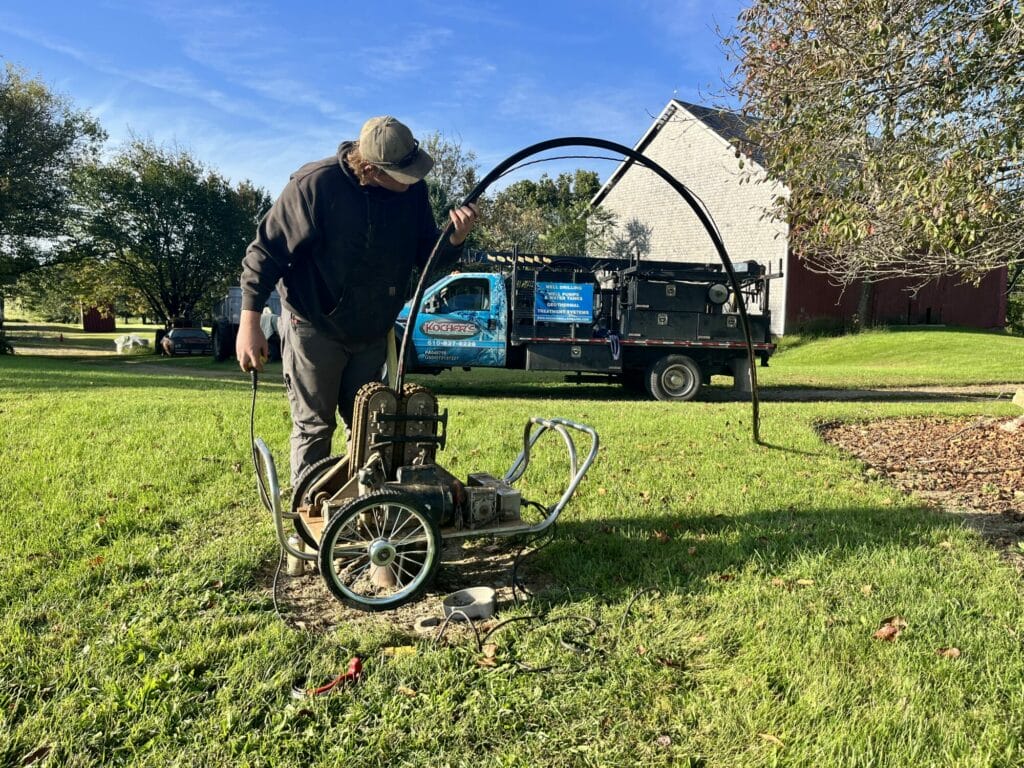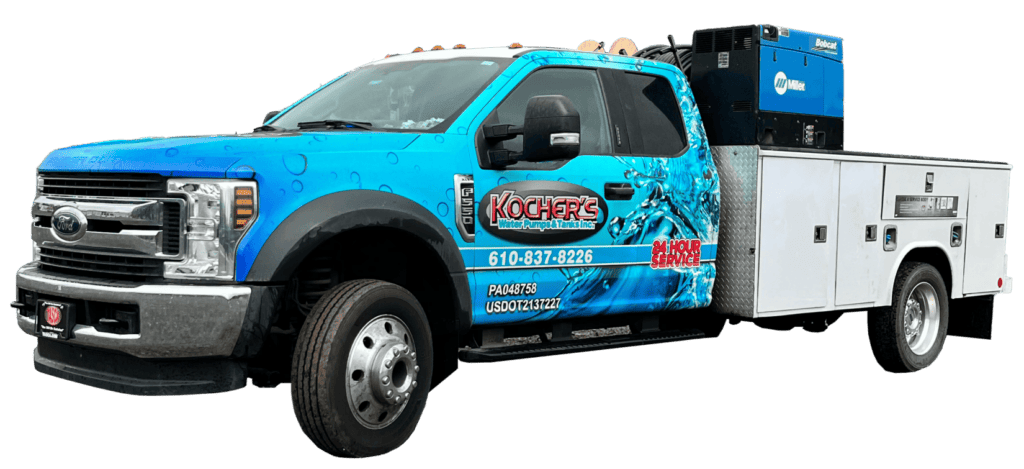Maintaining a private water well is a crucial responsibility for many homeowners in Lehigh Valley, PA. This guide is designed to empower you with the knowledge and tools necessary to ensure your well water remains clean, safe, and reliable. Please note regular well maintenance not only safeguards your family’s health but also enhances the performance and longevity of your well system.
In this guide, we’ll walk you through a comprehensive well inspection checklist tailored to residential wells. We’ll cover the critical aspects of water well system maintenance to ensure your well is properly maintained. With the help of this checklist, a qualified well inspector, and regular inspections by professional well drillers, you can maintain a steady and safe water source.
Stay vigilant, note the details, and let this checklist be your partner in ensuring clean water and robust well performance for years to come.
Understanding Your Water Well System: A Foundation for Maintenance
Water wells are essential for many households in Lehigh Valley, PA. To ensure adequate maintenance, understanding your well system’s components and their need for regular attention is crucial.
Your Annual Water Well Maintenance Checklist
As a homeowner in Lehigh Valley, PA, it’s essential to have a structured plan for maintaining your water well. Follow the steps on this checklist to guarantee your well’s water stays clean and safe, effectively safeguarding your system and avoiding expensive problems.
1. Regular Inspection
- Annual Inspections: Schedule yearly inspections with a licensed well contractor to assess water quality and the physical condition of your system.
- Risk Factor Identification: Check for potential hazards, such as nearby use of fertilizers or pesticides, that could contaminate your water supply.
2. Pump and Water Pressure System Maintenance
- Efficiency Checks: Regularly monitor your pump and water pressure systems for efficient functioning. Note any changes in water pressure.
- Professional Consultation: If you detect problems, consult a qualified water well contractor for complex maintenance tasks.
Comprehensive Water Quality Testing
Water quality testing is an essential part of well maintenance. It helps protect your system and ensures the water is safe for all household uses.
3. Bacteria and Chemical Contaminants
- Test for Coliform Bacteria and Nitrates: Conduct regular tests to detect these common contaminants early.
- Conduct Chemical Tests: Regularly check for hazardous materials that might seep into the groundwater, including pesticides.
4. Monitoring Water Quality
- Observe Odor and Taste: Be alert to changes in the taste or odor of your water, which could indicate contamination.
- Result Analysis: Use test results to guide your maintenance actions and ensure safe drinking water.
Annual Water Well Inspection: Essential Steps
Annual inspections by professionals are critical for assessing the overall condition of your well. They help maintain its performance and ensure water safety.
5. Visual Inspection
- Well Cover Check: Ensure it is securely fitted and undamaged to prevent contamination.
- Overall Condition Assessment: Regularly inspect the well casing and surrounding area for signs of damage or wear.
6. Professional System Review
- Full System Check: Have a professional examine all well system components, including the pump, pressure tank, and pipes.
- Tailored Recommendations: Obtain advice specific to your well type and local water conditions in Lehigh Valley.
Routine Annual Checks for Well Maintenance
Routine checks are the cornerstone of preventing major issues with your water well. These simple steps are vital to maintaining a reliable water source.
7. Contaminant Prevention
- Safe Storage Practices: Store hazardous materials like fertilizers and pesticides away from your well.
- Incident Preparedness: Have a plan for accidental spills or contamination near your well.
8. Customized Maintenance
- Special Attention to Drilled Wells: Focus on the casing integrity and sealing.
- Resource Utilization: Consider consulting with local well maintenance experts in Lehigh Valley, PA, for specialized guidance tailored to your specific well type. You can also visit reputable online resources dedicated to well care and safety for additional information.
Securing Your Water Supply: A Homeowner’s Guide to Well Maintenance in Lehigh Valley, PA
As we wrap up this essential guide, it’s crucial for homeowners in Lehigh Valley, PA, to remember the critical practices for maintaining a residential well. Here are the key takeaways:
- Routine Inspections: Schedule annual inspections with a licensed well contractor to assess the condition of your well and water quality.
- Hazard Monitoring: Be vigilant about potential hazards like fertilizers, pesticides, and other hazardous materials that could pose a risk of contamination.
- Quality Testing: Regularly test your well water for bacteria, nitrates, and chemical contaminants to ensure water safety.
- System Checks:
- Monitor the efficiency of your pump and water pressure systems.
- Check the well cover and overall well system for signs of wear or damage.
- Professional Reviews: Engage a well contractor for a comprehensive system review and obtain customized maintenance advice.
- Contaminant Prevention: Store potential contaminants away from your well and have a plan for dealing with spills or contamination incidents.
- Customized Care: Focus on the specific needs of your well type, such as casing integrity for drilled wells.
By following this guide, homeowners in Lehigh Valley can ensure a robust and efficient water well system, providing clean, safe water for their household needs. Remember, a well-maintained well is vital to the health and well-being of your family and the longevity of your water supply system.




